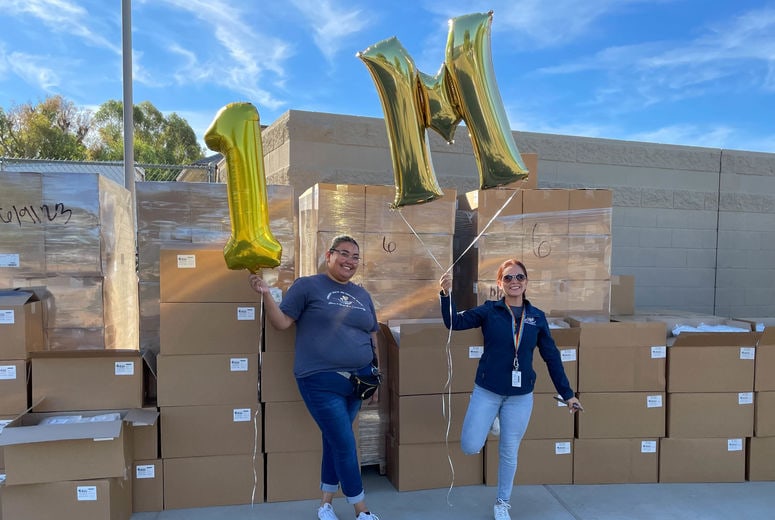
An initiative that distributes diapers twice a month in San Bernardino, California, United States, recently celebrated a milestone of 1 million diapers distributed since the program launched 15 months ago. Leaders estimate the program has saved residents US$250,000 during a time that for many people has been financially difficult due to surging inflation.
The initiative is coordinated by Loma Linda University Health in partnership with several community groups, including Community Action Partnership of San Bernardino County, San Bernardino City Unified School District, and the El Sol Neighborhood Educational Center via the Community Health & Education Worker (CHEW) Program.
Community Action Partnership of San Bernardino County identified a need for diapers, which can require up to 20 percent of income for some residents with low-wage jobs. The county’s partnership group then approached Loma Linda University Health for assistance with distribution because of its experience coordinating food distribution during the COVID-19 pandemic.
The program operates out of an elementary school parking lot and distributes some 80,000 diapers a month, leaders say. The diapers are provided by the state through the county’s community partnership program. Loma Linda University Health warehouse employees work to store and deliver the diapers for each distribution event.





“We want to celebrate the families who are coming in, so we’re out there each time, rain or shine,” said Cristie Granillo, of Loma Linda University Health’s Institute for Community Partnerships and manager of the CHEW program.
Strong community relationships have developed through this program, allowing the team to work toward closing health equity gaps by sharing essential resources, such as medical and school enrollment, potty training education, and awareness of other programs.
Drivers line up their cars awaiting assistance and are often given additional items or referrals to other services, such as preschool for their children or family nutrition counseling. Volunteers also distribute 600 food boxes each month.
The event has helped people like Monique Walter, who has nine children and has recently seen her apartment monthly rent increase by approximately 30 percent. “It’s really good to receive these because diapers are so expensive now,” Walter said in line while being served by a volunteer.
Loma Linda University students also participate in the initiative, either as volunteers or as a practicum requirement for their program of study. Many come from the School of Medicine, School of Public Health, School of Dentistry, and the School of Behavioral Health.
The original version of this story was posted on the Loma Linda University Health news site.